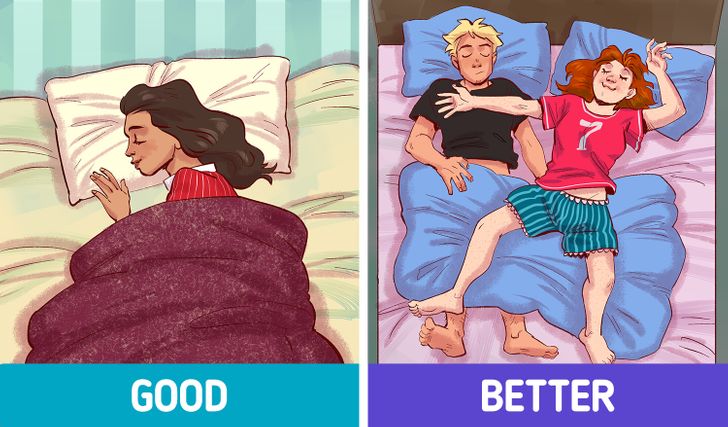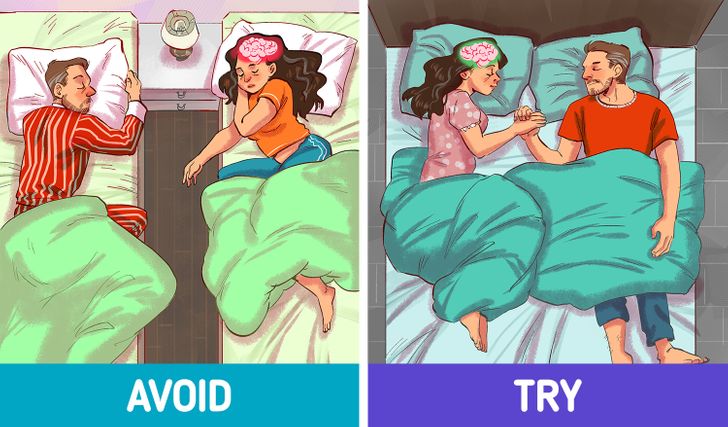A survey found that 1 in 4 couples sleep in different beds. And it’s not always because the spark is gone. Sometimes poor sleep quality due to different sleep habits or schedules can be to blame. But great minds have discovered that sharing a bed with your partner, despite the loud snoring and endless battle for the blanket, can actually make you healthier and happier.
We have rounded up the highlights from the experts, explaining why capturing Zs alongside your loved one may be worth it.
Sleeping next to a partner can help enhance deep sleep, which benefits our memory and mood.

One experiment compared couples’ sleep levels when they napped together versus when they were apart.
The research team concluded that people who slept together with their partners had higher levels of Rapid Eye Movement (REM) compared to when they slept separately.
REM is good for the body because at this stage our brain becomes more active. And that benefit extends to our waking lives, helping with memory organization, emotion regulation, creative problem solving, and social interactions.
Cuddling reduces stress and lowers the risk of heart problems.

The act of hugging releases the hormone oxytocin, which helps reduce stress and promotes emotional responses related to relaxation, confidence, and psychological stability.
Scientists have also studied the effects of hugging on women’s blood pressure. And they found that respondents who were more welcome had lower blood pressure and lower heart rates.
High levels of oxytocin also decrease the production of the stress hormone cortisol. In large amounts, cortisol can trigger inflammation, heart disease, and other autoimmune disorders.
Bedding down and having skin-to-skin contact with your loved one may help reduce anxiety.
Touch is a very powerful tool that can do wonders for the body. In a psychological study, women’s anxiety levels were measured by the way their brains lit up on an MRI scan.
When the subjects held hands with a random person in the experiment, their stress level decreased.
But when they intertwined fingers with their spouses, their anxiety completely subsided, scientific proof that our significant others can affect our health.
Sharing a bed with your partner could possibly save your life or help you identify sleep disorders.
Sleep apnea (which affects the muscles and tissues in your throat and causes you to stop breathing) is a potentially serious disorder if not detected or treated early.
Its symptoms include intense snoring, choking, and wheezing. And having a partner by your side who can pay attention to these signs can be crucial right now.
An article also reported how a man who was always hugging his wife knew immediately when she was having a seizure. Essentially, partners are very important when it comes to addressing potential medical issues.
There is a direct link between sleep and relationship quality.
Research results indicated that a healthy romantic connection can lead to less stress and better sleep. Whereas a stressful relationship will likely cause sleep disturbances and disturbances.
The experts also found that women who had positive interactions with their partners during the day slept better at night. Meanwhile, the opposite is true for men: Those who enjoyed good, quality sleep were more likely to interact better with their partners the next day.
Do you agree with the points mentioned? Do you sleep better when you are alone or with your partner?


